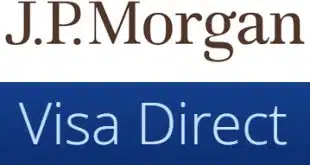A push by big retailers to have certain payment-network rules scuttled in court is keeping one of the biggest cases in the history of the payments business alive. What will happen now?
If you thought the massive—and massively complex—payments litigation known officially as In re Payment Card Interchange Fee and Merchant Discount Antitrust Litigation is all over but the shouting, think again. The shouting is likely to go on for quite some time and bear consequences for banks, networks, and merchants that could go far beyond the $6.24-billion settlement that won final approval in December from the Brooklyn-based U.S. District Court for the Eastern District of New York.
What was settled was the so-called monetary-damages portion of the 14-year-old case, known as MDL 1720 for short, where the “MDL” refers to multidistrict litigation. Courtesy of the defendants, a roster that includes Mastercard Inc. and Visa Inc. as well as a number of big-name banks, millions of mostly small and mid-size merchants will now split a $6-billion pot to compensate for damages they allege they suffered through paying artificially high discount fees for card transactions.
Left unsettled, however, and looming ominously on the horizon, is the other part of the matter.
That’s because some of the nation’s biggest merchants, including Home Depot Inc., 7-Eleven Inc., and Target Corp., opted out of the money-damages settlement and focused instead on something that’s always been part of the case but cuts much closer to the bone for the payment networks: the networks’ mandates and restrictions surrounding card acceptance.
‘We’ll Try the Case’
These merchants reason that if they can get the rules changed or dropped, they’ll win something more valuable than a portion of money—they’ll win leverage over the point of sale and potentially “alter the balance of power” in the long-running relationship between merchants and networks, according to Anita Boomstein, an attorney specializing in payments who is closely following the case but is not representing any of the parties.
Visa and Mastercard “have always had total control through their rules on pricing and on how cards are accepted at the point of sale,” she says. “This case challenges their ability to do that.” Visa declined to comment for this story. A Mastercard spokesperson did not respond to a request for comment.
The rules for which the merchants are seeking injunctive relief include a number of hobgoblins they have complained of for years, including honor all cards, no surcharging, no bypass, and accept at all outlets.
Merchants also would like to see a ruling that corrects what they argue is network non-compliance with the debit-routing rule as laid out in the Durbin Amendment, which requires that merchants have a choice of a second network for each transaction.
These complaints involve many matters on which the networks aren’t likely to give ground, and the merchants know it. Their lawyers are already girding for battle in the Brooklyn courtroom.
“We have no reason to believe that defendants are inclined to talk in a way that’s meaningful at this stage,” says one attorney on the merchant side who spoke on condition of anonymity. “We have the wherewithal to take this to trial and beyond if that’s what it takes. We developed a strong record and we’ll try the case.”
Long-time observers, too, see little chance of pre-trial agreement. “The chances of no settlement are greater than ever,” says Eric Grover, principal at Intrepid Ventures, a Minden, Nev.-based payments consultancy.
‘Original Sin’
Those sympathetic to the networks aren’t fazed. “Lawyers like to bill,” shrugs an attorney who spoke to Digital Transactions on background. He is not connected to the case but follows payments litigation.
This attorney, along with some other network partisans, argue the focus on acceptance rules is really a smokescreen for something else. “It’s a bloody-minded obsession with cost,” he says, arguing merchants ignore the cost of cash acceptance while seeking to change rules they see as foisting unfair card costs on them. But the cost of cash “greatly exceeds what they pay” to accept cards, he says.
But merchants retort the network rules hobble their ability to negotiate costs in the first place. Honor all cards, for example, requires that a merchant that accepts one type of a network credit card must take them all (litigation decided in 2003 established merchants could take credit but not debit, or vice versa). And that requirement now extends to wallets.
“Honor all cards is the core issue,” says Mark Horwedel, formerly chief executive of the Merchant Advisory Group, which represents retailer interests in payment matters, and now a consultant to CMSPi, a U.K.-based research group that advocates for merchants. “It’s no secret,” he says, “that most merchants see honor all cards as the networks’ original sin.”
But if the merchants are set on invalidating this rule, the networks are equally determined to preserve it. “I think [the networks] will fight strenuously to preserve the honor-all-cards rule, which has been a fundamental, and unbreakable, requirement for decades,” says Boomstein.
A closely related issue is that of steering, in which, for example, cashiers may “steer” a customer away from a particular card and toward one the merchant favors for cost or other reasons.
That, too, is banned, a restriction that seemed to be upheld for good when the Supreme Court ruled in favor of American Express Co. in a steering case in 2018. Visa and Mastercard originally were defendants in that case, as well, but quickly settled and modified, but did not rescind, their rules.
The Supreme Court decision, some observers say, could undermine the retailers’ case for injunctive relief, at least on this question. The networks “aren’t looking to make any huge concessions,” says the pro-network attorney who has been observing the case. “If the retailers choose to take it to trial, they would probably not do that well in the wake of the AmEx decision.”
‘Way Too Long’
But for which side are the stakes highest at trial, if it comes to that? While many see the networks occupying a stronger position, they also see them as having the most to lose, and hence the bigger reason to push for a settlement. If the merchants lose at trial, they simply occupy the position they’re already in, this reasoning goes. “It’s status quo for the merchants, not a catastrophic outcome,” says Grover.
But if a jury finds against the networks, even if that outcome is unlikely, “their business model could be wrecked,” he says. Even though he sees no immediate prospect of a settlement, he argues the prospect of that scary outcome could ultimately hold sway. “If I’m the networks, I’m going to push for something that works and avoid a jury trial,” he says.
The question now is how far off the day may be. This case, which stems from separate actions that were ultimately consolidated in 2005 into MDL 1720, has already wore on for years. Some of the combatants, at least, are eager to get on with the courtroom combat that could finally end the matter.
“I hope the trial’s soon,” says the attorney representing some of the merchants. “It’s gone on way too long already.”
MDL 1720: A Timeline
- 2005 – October
Judicial Panel on Multidistrict Litigation combines 14 antitrust cases
- 2006 – April
Plaintiffs file first consolidated amended class-action complaint in U.S. District Court for the Eastern District in Brooklyn, N.Y.
- 2009 – January
Plaintiffs file second consolidated class-action complaint
- 2012 – October
Parties agree to a settlement
- 2012- November
Court grants prelimary approval of settlement, sets two classes, one for damages (opt-out possible), one for injunctive relief (opt-out not possible)
- 2013 – December
Court certifies the two settlement classes and approves the proposed settlement over objections of several plaintiffs
- 2016 – July
Appellate court vacates approval of settlement and certification of settlement classes. Case goes back to Brooklyn, with plaintiffs divided into two groups: those seeking
monetary damages, and those seeking relief from acceptance rules
- 2017 – March
Supreme Court refuses to hear appeal of the lower court’s nullification of $5.7-billion settlement
- 2018 – September
Parties agree to a $6.24 billion settlement of the monetary damages case
- 2019 – September
$6.24 billion monetary-damages settlement wins preliminary court approval
- 2019 – December
Court issues final approval of monetary-damages settlement





